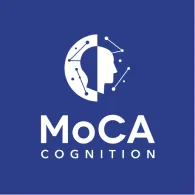Cognitive health is a crucial component of our overall well-being, encompassing the ability to think, learn, remember, and make decisions. These cognitive functions are vital at every stage of life, not just in older age. They enable us to live independently and remain engaged with the world around us.
Broader Perspectives on Cognitive Impairment
Cognitive impairment, often associated with aging, actually knows no age limit. Young individuals may experience cognitive challenges due to various factors, including:
-
Head Trauma
Accidents or sports-related injuries can result in concussions or other forms of head trauma, affecting cognitive function.
-
Sleep Deprivation
Lack of sleep can significantly impact memory and the ability to concentrate.
-
Medications
Certain medications can alter mental clarity as a side effect.
-
Chronic Stress
Persistent stress has been shown to affect cognitive health negatively.
Understanding Cognitive Decline
In older adults, cognitive decline is often linked to conditions such as Alzheimer’s disease or vascular dementia. However, recognizing the early signs of decline, which can be subtle, is essential. Mild Cognitive Impairment (MCI) represents an early stage of cognitive decline, where the changes are noticeable but not yet debilitating. Timely identification of MCI is critical because early intervention can slow the progression of cognitive decline.
The Importance of Early Detection
Detecting cognitive changes early is a priority for individuals of all ages because it opens the door to:
-
Reversibility
Some cognitive impairments are reversible, and early detection allows for adjustments in treatment that can lead to recovery.
-
Lifestyle Changes
Understanding cognitive health can lead to lifestyle adaptations that support and enhance cognitive function.
-
Future Planning
Early detection also allows for planning and preparation for potential progressive cognitive changes.
Navigating Cognitive Changes Together
Cognitive health is a journey that requires vigilance and a proactive approach. For young people, addressing cognitive impairment promptly can lead to effective management and recovery. For seniors, early detection of cognitive changes is essential for maintaining the quality of life and independence.
Healthcare professionals play a vital role in supporting individuals through this journey at all ages. They ensure that each person has the necessary resources and knowledge to manage cognitive changes confidently. By working together with healthcare providers, individuals can navigate the challenges of cognitive health, maintaining autonomy and engagement in life’s activities.
As we continue to understand more about cognitive health, the emphasis on early detection and intervention becomes increasingly important. Whether through educational efforts, community support, or healthcare guidance, a collective effort is necessary to address cognitive health proactively. This collaborative approach empowers individuals to take charge of their cognitive well-being and face the future with assurance and resilience.
